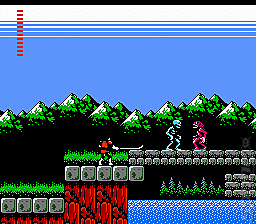Trending
Opinion: How will Project 2025 impact game developers?
The Heritage Foundation's manifesto for the possible next administration could do great harm to many, including large portions of the game development community.
There are many aspects of the Games vs. Art debate, but several hot-button issues tend to eclipse important parts of this debate. In this series, I'll be discussing the less known aspects of Games as an art form.

There have been a lot of talks, as of late, about games and how they fit - or don't fit - into the world of Art.
What surprises me the most is that, so frequently, people neglect to bring up the most important aspect of this entire debate. This first part of what I hope to make into a long series of posts will focus on that all important question: Just what is art, anyway?
Art: The Word that Defied Definition
Let's start with the dictionary definitions.
noun
1. the quality, production, expression, or realm, according to aesthetic principles, of what is
beautiful,appealing, or of more than ordinary significance.
2. the class of objects subject to aesthetic criteria; works of art collectively, as paintings,
sculptures, or drawings: a museum of art; an art collection. See fine art, commercial art.
3. a field, genre, or category of art: Dance is an art.
4. the fine arts collectively, often excluding architecture: art and architecture.
5. any field using the skills or techniques of art: advertising art; industrial art.
The first thing that grabs me about these definitions is the use of the word "aesthetic" in the first two definitions. Without posting the explicit definition of aesthetics, the important part, as it pertains to our definition of Art is that aesthetics is used here almost interchangeably with beauty.
Beauty, we're told, is in the eye of the beholder. No one agrees, one hundred percent, on their sense of aesthetics. As this applies to art, no one will perceive the same things in the same painting or song. Sure, we have a lot of common ground, but the differences tend to be what we argue about.
My own conclusion - very open to debate, by the way - is that art won't ever mean exactly the same thing to any two people. Art is subjective. Art is in the eye and the ear, as much as it was ever in the paint brush or the violin.
Our next three definitions all move towards an academic state of art: What field does the supposed art fit into? It's actually very interesting that these three don't contain aesthetics, as the less used definition for that word centers around the academic conventions and philosophical standards that we set for judging a particular aspect of beauty.
Have we arrived any closer at a definition of art that helps us understand whether or not games count? In my opinion, no.
The Art of Games, and the games we play with art
So no one will have the same definition for art. Even if we can all agree on the wording for such a definition, we'll still be left at the hopeless impass of looking at a famous masterpiece and utterly disagreeing with the person standing next to us. Why? Because we all find different things beautiful.
One of my favorite college professors spent almost a week trying to tell us why the debate, itself, was hopeless. This was in our Color Theory course, sophomore year.
He contended that the last person who should be deciding what is or is not art is the artist. People, he said, will ultimately take whatever they want to from your work.
By the time your work is out in the world for people to experience, you've said your part. By putting it out for the world to see, you're opening up the debate to everyone else. It's their turn now.
In that light, why is it so important for us - as a group, as a culture, as a world - to have some kind of cut-and-dried verdict on whether or not games can or cannot be considered art?
How could we we even have such a verdict? Do we choose the majority opinion? If a group of twenty people view a new game, but only nine of them find it beautiful, it's not art, because eleven did not. Eeehhhh...
I contend that something is art if you personally believe it is. It doesn't matter what the rest of the world thinks. Something is art, to you, if it moves you. If you look at it, listen to it, play it and say, "This is art. To me, this is beautiful."
In much the same way that the artist has had their say by the time you experience it, the rest of the world will have theirs. Some will agree with you. Others will disagree. Who is right? Everyone.
The artist is right - they created something and put their message within it. They treated it as art and so, to them, it is.
The fan is right - they were moved by what they experienced, changed by it. In their minds, it's art.
The critic is right - they felt something was missing. Something they needed to find wasn't there. Without that element, it can never be art.
Let me give you an example:
Castlevania 2: The Bridge

The Hunters
Read more about:
BlogsYou May Also Like